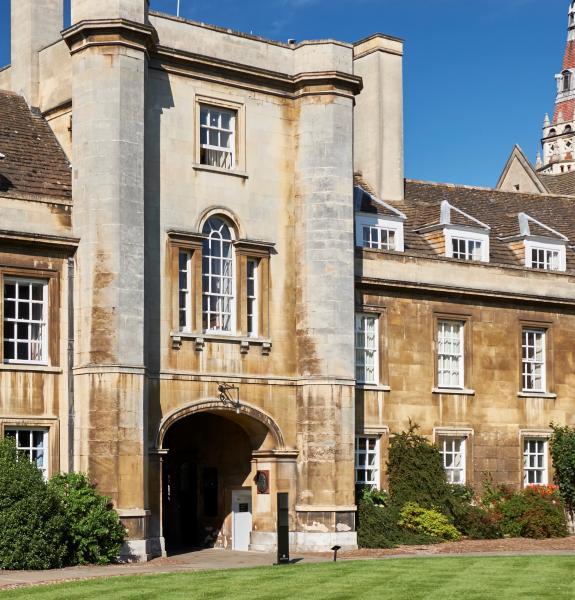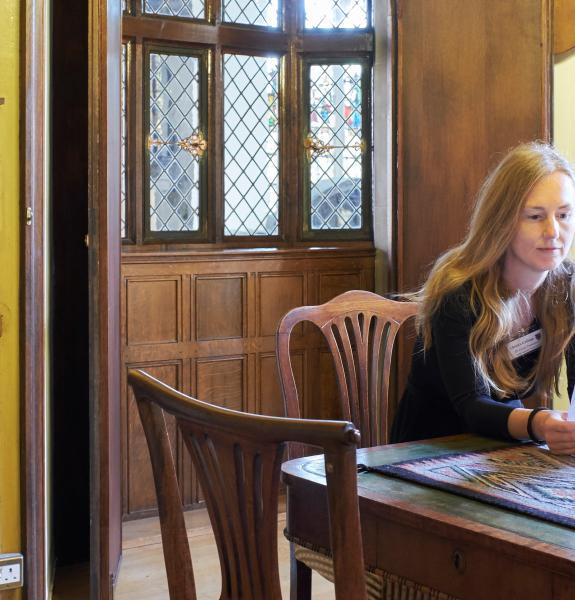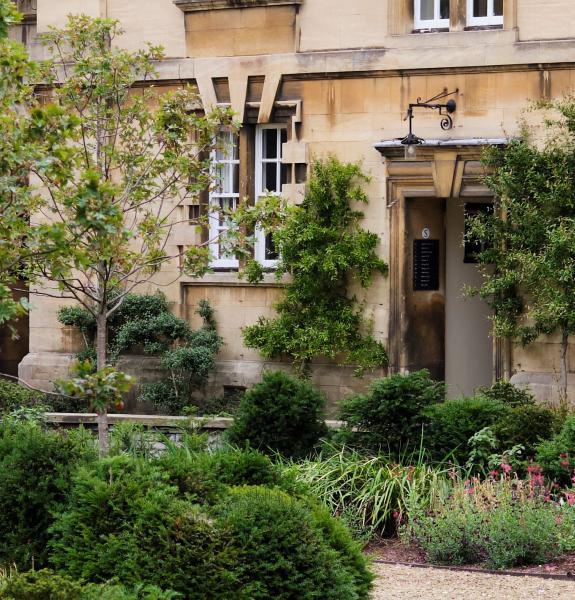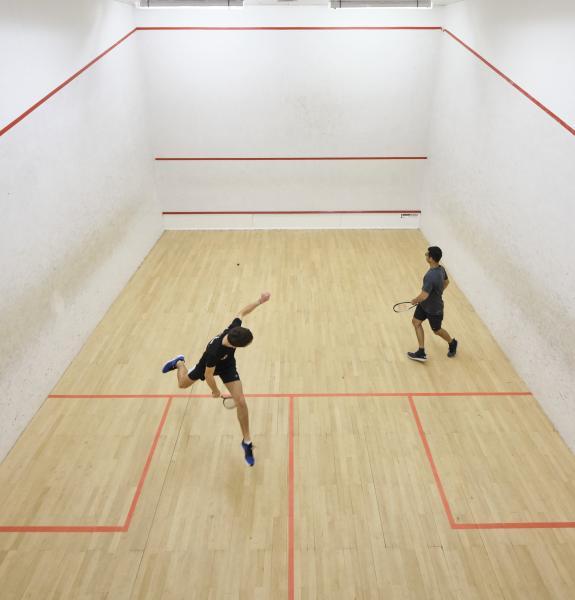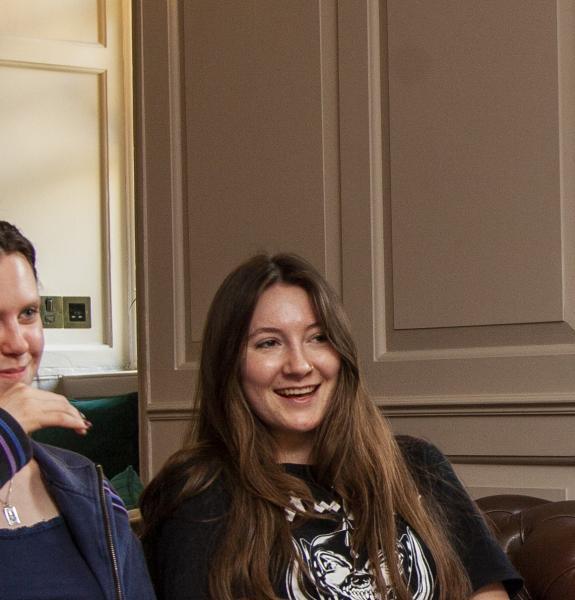Ari wrote this at the end of her second year at Christs. She studied Classics (4-year course) in first year then switched to Archaeology (from the beginning for the course), so at the time of writing, she had just finished first year Archaeology. Ari is from Hong Kong, but studied in the UK for sixth form, taking a mixture of A-Levels and Pre-U qualifications in Philosophy, Music, Classical Civilisation, and a year of English.
What attracted you to Classics (4 year course), then how did you come to switch to Archaeology?
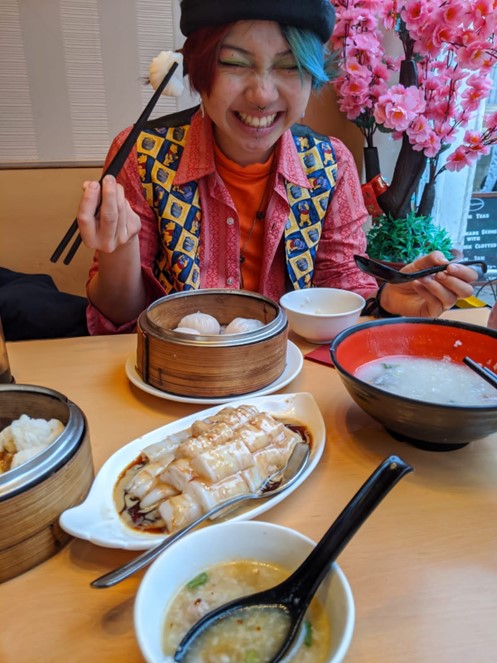
Well. This is a bit complicated!
I originally applied to do the 4-year Classics course as I was super indecisive about what to study at university and A level Classical Civilisation was just one of those subjects where the essays came quite naturally. I knew I wanted to study something that allowed me to look at a broad range of subjects and when I applied for universities I applied for Liberal Arts at two of my choices.
I originally applied for Classics at Cambridge for two reasons: Firstly, Classics is sort of liberal arts....? Just old. Like a lot of Liberal Arts courses, the course at Cambridge allows you to explore the different facets of the classical world and then specialise in due time. Secondly, it is one of the only courses that allows you to study Classics without Latin A-Level, which was great because I had no background in Latin overall. I enjoy studying languages so I knew I would enjoy the intensive Latin prelim year. But then I switched to Archaeology after my prelim year! And I started all over again.
I made the switch to Archaeology after I realised that in my spare time I enjoyed reading and listening to podcasts about the natural world and animals and plants and all that stuff, instead of Classics stuff. Big shoutout to the Ologies podcast, which prompted this realisation (no I am not sponsored). I also realised that one of the things that makes me really happy was being outdoors and doing hands-on stuff.
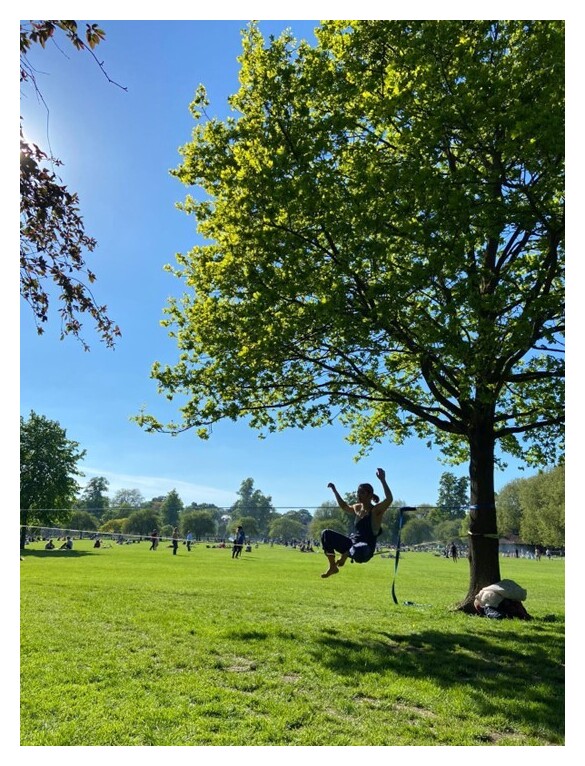
So this was a bit of a funny situation for me... On the one hand my trajectory since (almost) IGCSE was heavily arts and humanities based. On the other hand I conveniently discovered one year into my course that actually I am far more interested in the natural world, the outdoors, the environment. I wanted to do science! And do fieldwork, and sit in dirt. (I am a firm believer that there are fields in Archaeology which are totally STEM subjects). I felt very hesitant to make the switch however. I could barely remember how to do maths, I hadn’t even done biology at IGCSE, so I wondered if I was overestimating my abilites? Turns out first-year Archaeology is really chill and introductory for the science stuff but I actually used a measuring cylinder and a microscope(!). “Say no more” said the Faculty of Archaeology website... “we do not expect particular A-Level combinations”.
Now I am going on to study the Archaeology track this year, doing modules such as Archaeological Science (geoarchaeology, archaeozoology, osteology and archaeobotany!) and Data. I think to myself, “dude that’s so totally epic”. It’s going to be a challenge and I am kind of terrified but I am so excited!
Why did you choose Cambridge over courses in another country?
I grew up in Hong Kong but in a quite westernised household. Growing up I spoke English at home and was primarily immersed in western culture and media. Therefore, and slightly shamefully, I never became fluent in Cantonese or related to my cultural heritage, or “local culture”. I was worried I wouldn’t fit in with the “crowd” at universities in Hong Kong. What’s more, studying abroad is an adventure! I value my own independence and like exploring different cultures and meeting new people.
Was there anything that you were nervous about, in relation to the course?
Excluding the stuff above about suddenly doing science stuff, I guess I was worried about totally losing the “humanities” aspect of my studies, like getting really absorbed into essays and all that fun stuff. I was also a bit sad about not being able to learn a language.
But I was totally wrong about that! I have written some really interesting essays this year (and coursework! Love coursework) and learnt Babylonian, which is a really epic (but frustrating) language.
Why did you apply to Christ's?
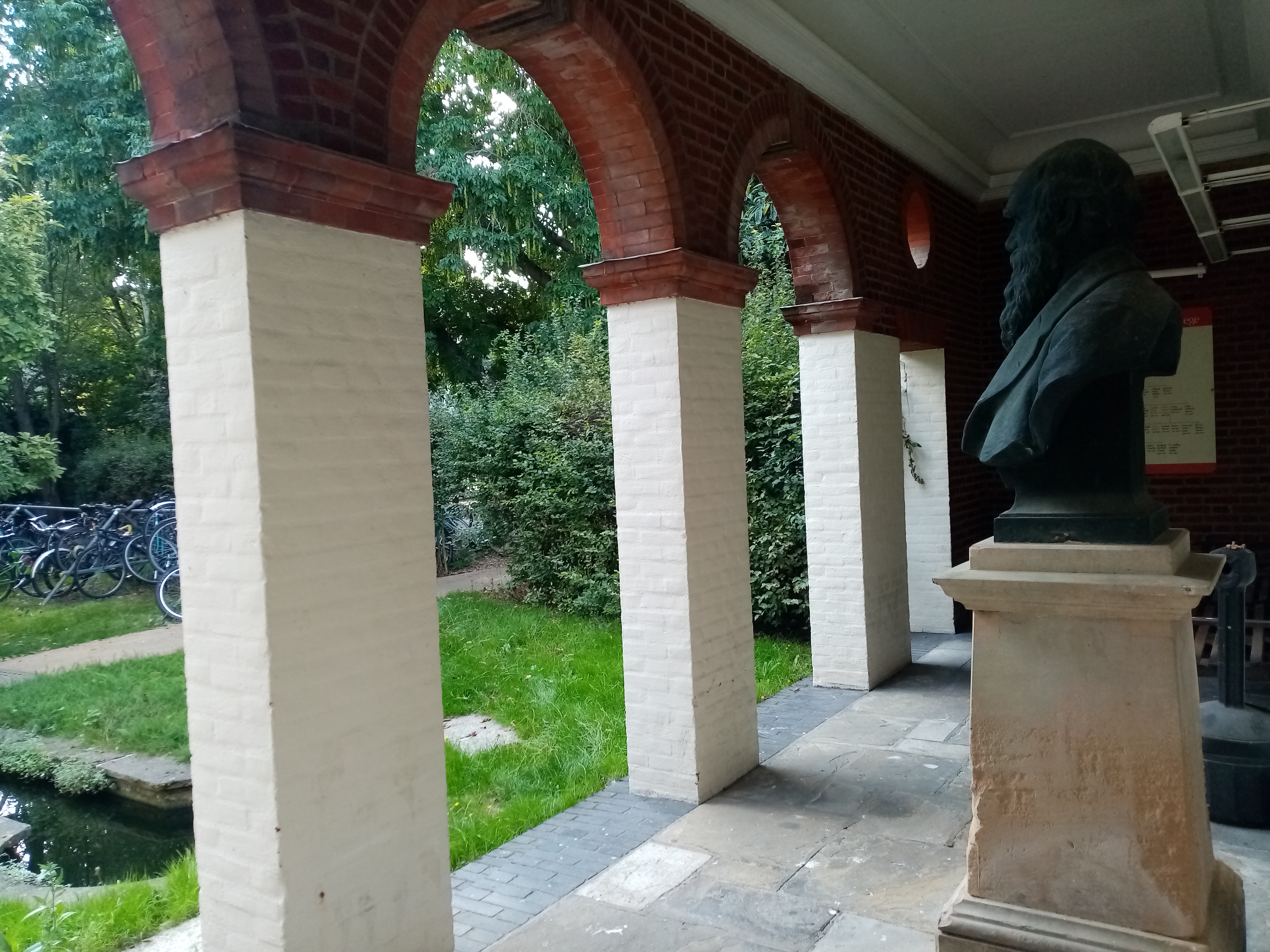
So I’m not the most organised person and left my Cambridge application quite last minute. I also had absolutely no clue what the college system was before arriving (who does?) and no matter how many times I read about it I just could not understand it [Admissions Office edit: attend Cambridge for Beginners if you find yourself in this position!]. Originally I wanted to apply to Trinity Hall because it has a really cool library, but I ended up applying to Christ’s as it had more Classics academics. Although now I've changed course, my Archaeology Director of Studies is at Emmanuel!
I appreciate having a smaller campus in Christ's, (getting to the library isn’t a trek) and that it literally is in the centre of town. The JCR also works really hard to create a warm and welcoming college atmosphere as well. My only complaint would be that communal spaces in some of the accommodation are a bit lacking.
My favourite place in College is the smoking area by the massive bust of Charles Darwin (this is called the Darwin Portico). Not because of the smoking, but just because it’s a really nice place to sit without being perceived.
What do you think of the collegiate system?

I have mixed opinions. I do think it is luck-based in that finding the right group is a bit of a lottery (although you can always hang out with people at other Colleges!). I also think it’s not the most conducive to creating a sense of uni-wide identity. On the other hand it is awesome that there is a cafeteria, bar and library (even a pool!) within a 2 minute walk. I think it also makes it easier to mingle with different years and meet people who do different courses.
I didn't know what I was doing when choosing a College, but here's the advice I'd give to others. Think about whether being in a smaller or bigger college would suit your style of socialising (Christ's is about average-sized). Also have a look at its proximity to your faculty building, especially if you think you'll spend a lot of time there or if you don't know how to ride a bike. Also, the aesthetic! Liking your room and the space you inhabit has a really big impact on your well-being (at least in my experience). And atmosphere! Different colleges also offer different grant/bursary opportunities and financial aid so that is something worth considering.
Have you recieved any particular support from College?
I am incredibly grateful for my college tutor (an academic who is not involved in your subject, who's there to look after you pastorally), for being so helpful and committed to helping my mental health. There is also a college nurse & psychologist who can help get you quick doctor’s appointments and free counselling!
How did you find the application process?
I am very lucky to have had lots of support from my school for Oxbridge applications, like mock interviews. In all honesty, I struggled writing my personal statement as I originally applied for both Classics and Liberal Arts. Tests change from year to year but when I applied for the 4-year Classics course there was a test that was really just like another interview rather than a written test, which was such a relief. NB. Make sure you’ve got two really good essays to send in if your subject needs written work (you can check requirements on the subject page).
How were your interviews?
I was so nervous about the interviews: I cried after one of them. To prepare I had a mock interview with my school, read through my personal statement and made sure to revise the books and articles I mentioned in it.
It wasn't what I expected it to be – it was far more candid. One interview was even fun - it just felt like an interesting conversation. And it wasn’t as one-sided as I expected it to be either. Rather than an interrogation, I found myself asking the interviewers questions as well.
What advice would you give to prospective applicants?

Be yourself during the interview. They know you’re nervous but they’re not trying to catch you out! Make sure you’re humble during the interview but also don’t downplay your abilities, and don’t be afraid to stand by and defend any opinion or argument you’re presenting. There is no wrong, as long as there is sound thinking. Just show your genuine curiosity in both the subject and the interview questions. Take time to understand the question and don’t be afraid to ask them to clarify.
Before you came to Cambridge, what were you looking forward to and what were you most worried about?
I was excited about all the cool societies I could join and the awesome academics I would be learning from. I was most worried about how an intense academic environment and small city might impact my mental health. I also worried about how flat Cambridge is. If you like climbing, Cambridge is really flat. The closest place to climb outdoors is 2-3 hours away in the Peak District.
What helped you settle in?
 I found the first couple of terms difficult, largely because of the Covid-19 pandemic. Outside of College, it was impossible to meet other students at societies and stuff. I also wasn’t able to attend a summer course that other 4-year Classics students attended because of international travel restrictions, so I was nervous about interacting with “already established” groups. I think in first year, especially in first term, you perceive and assume a lot of “established” friend groups. I struggled with remembering that these people have literally known each other for a few weeks and that friendship is a flexible thing- this among other things took a really big toll on my mental health. Reminding myself that a “group” (whatever that means) is any reflection of my person or the defining factor of a fruitful social life has helped me. If it helps, I think it is a problem that plagues most students our age.
I found the first couple of terms difficult, largely because of the Covid-19 pandemic. Outside of College, it was impossible to meet other students at societies and stuff. I also wasn’t able to attend a summer course that other 4-year Classics students attended because of international travel restrictions, so I was nervous about interacting with “already established” groups. I think in first year, especially in first term, you perceive and assume a lot of “established” friend groups. I struggled with remembering that these people have literally known each other for a few weeks and that friendship is a flexible thing- this among other things took a really big toll on my mental health. Reminding myself that a “group” (whatever that means) is any reflection of my person or the defining factor of a fruitful social life has helped me. If it helps, I think it is a problem that plagues most students our age.
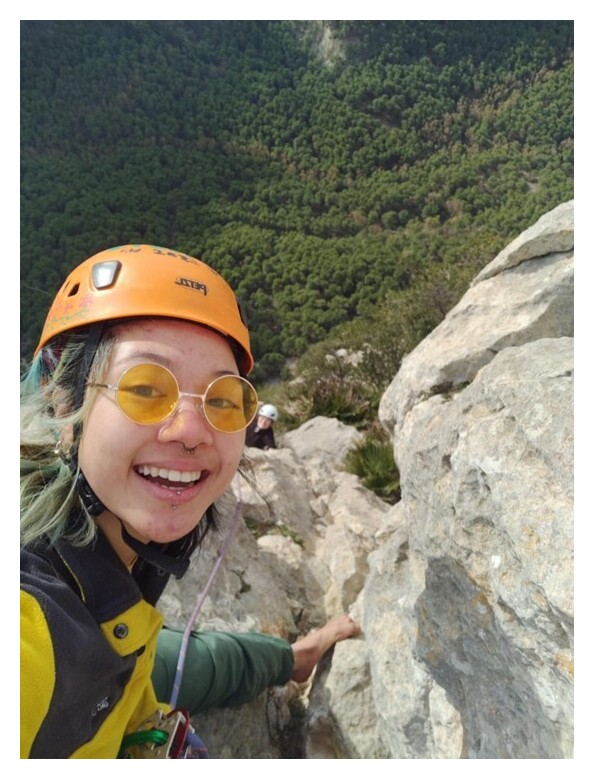
When it was possible, I found my community in the Mountaineering Club as well as finding other people who like art and stuff. Also, eating with people in the college canteen is a good way to meet. And eating Chinese Food. Food brings people together.
My biggest piece of advice would be to not neglect your wellbeing while you're here: it's important to do things other than academic work and look after yourself and your friends, especially with the intense workload. Also, use a calander!!! It will save your life
What surprised you about starting at Cambridge?
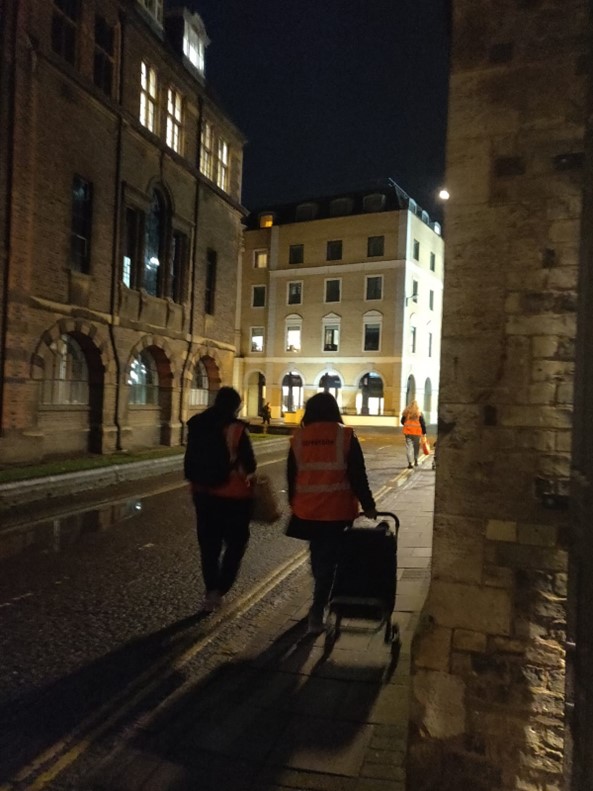
Well your initial thought is that everyone at Cambridge will be a nerd (even though you yourself are one, admit it). But everyone is so incredibly multidimensional. It is also not impossible to have fun (proper fun, not library all-nighters!). I think the intensity of the terms creates a strong sense of solidarity amongst students, as long as it doesn’t become competitive or unhealthy.
There are also some really good Chinese restaurants here: I recommend Hong Kong Fusion (near St. John's college, a six-minute walk fron Christ's) and North China Dumpling (on St. Andrew's street, a seven-minute walk from Christ's). There are also a lot of opportunities to do art in a semi-formal capacity (like making posters for student-theatre plays or for Varsity, the university newspaper) even if you don’t have qualifications or much background, as well as student-led initiatives such as Streetbite which is charity that helps out rough sleepers.
How did you find starting lectures and supervisions etc?
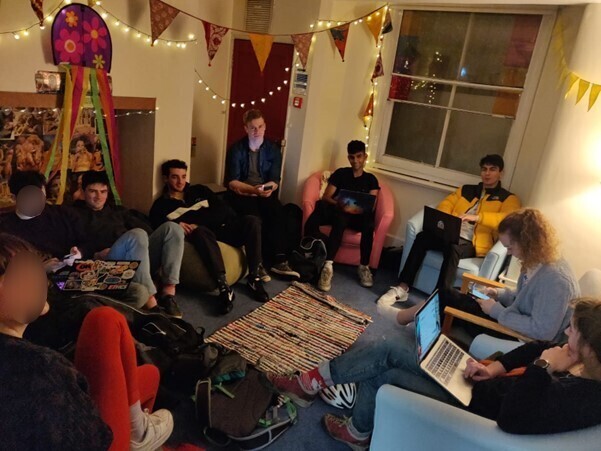
Classics: I didn’t have that many lectures in my prelim year as it was mostly class-based, which I really enjoyed as it was more interactive which makes it hard to lose focus. The lectures that I did have were purely introductory and their contents were not examined. Same with supervisions, the interactive aspect and the ability to present your own arguments is really awesome.
Archaeology: As for my first year of Archaeology, the lecture timetable was far more intense and you’d be in some trouble for exams if you don’t pay attention....
First year lectures, at least for Archaeology (and prelim classics) are very introductory and broad. It’s like a crash course to provide you with a foundation of knowledge you will build on in the subsequent years. I found this a bit frustrating as I like studying things really in depth or else I don’t really understand it. It’s easy to forget this when you’re writing first year essays, and I kept on reading far too much than I actually needed to for them. Also in supervisions, it’s fine to mess up. Don’t put on a façade of knowing everything about the topic – it's as much presenting your knowledge of the topic as it is poking the holes in your understanding and consolidating. Some supervisors and lecturers are better (for certain students) than others and don’t expect perfect organisation – academics are human too!
What is different with your work now, compared to at school?
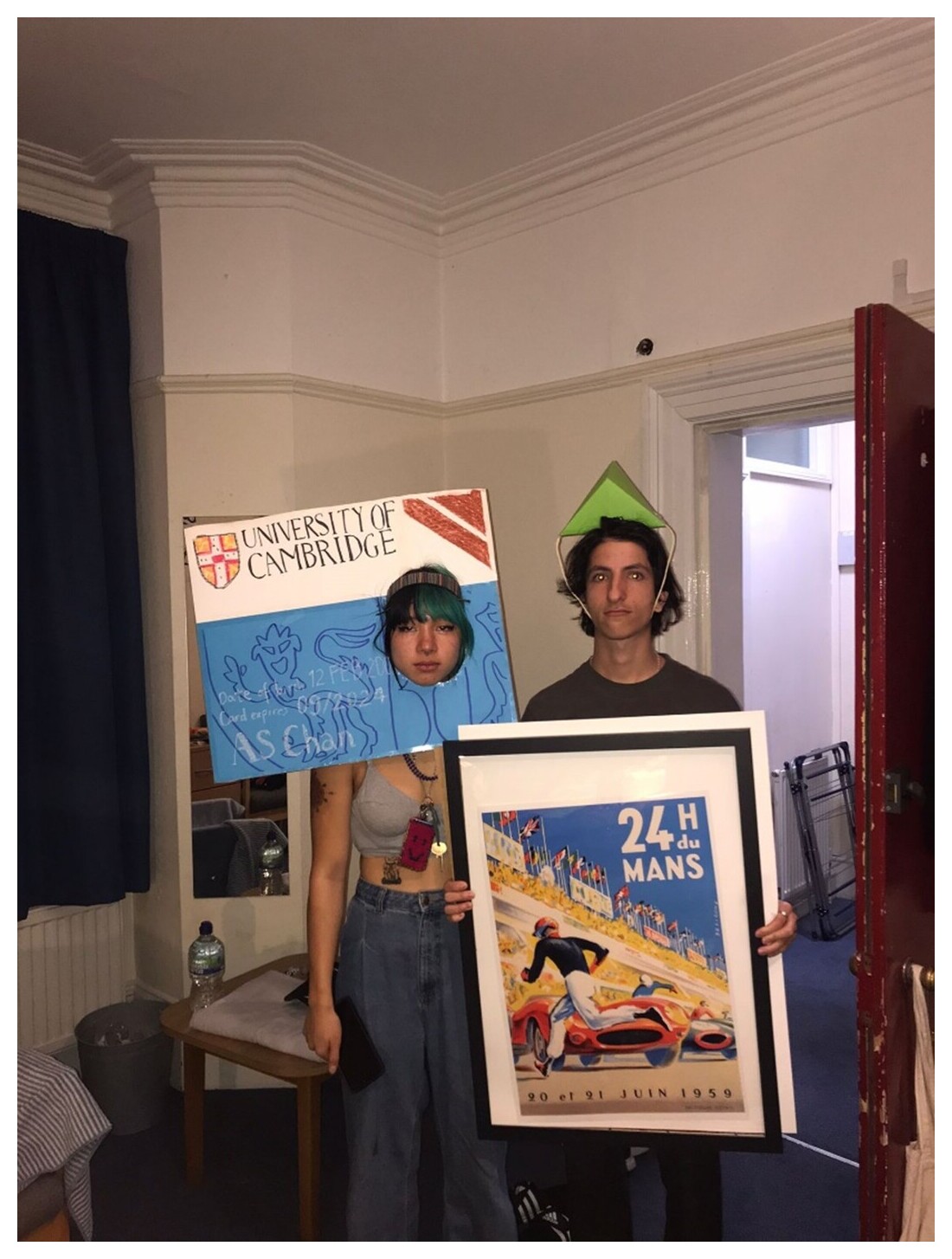
At A-Level you can definitely get away with not being that critical in your essays, but I soon realised that an essay lacking critical thinking will not get the best mark. The pace is also so much more intense in that essays have to be churned out quicker and because the terms are so short. My work now is, funnily enough, less perfectionistic- there simply is not enough time to be a perfectionist in your work unless you literally do not sleep. At school it took me like 20 minutes to write a sentence. Now I know that not every essay I hand in is going to be perfect and I’m fine with that.
What are the best and hardest things about your course?

For Archaeology, I think I lack quite a lot of background knowledge as I was not one of those kids that knew I wanted to be an archaeologist at the age of four! In fact I didn’t really know what Archaeology was until I wanted to switch subjects and realised it slotted into what I want to get out of my education. So there’s that. Also the fact that I’ve not done maths and science for years. I also made the grand decision to study Babylonian language which was fun (at times) and rewarding (at times) but also really really really really hard. Archaeology covers an incredibly long time frame (millions of years) so I struggled wrapping my head around what I was actually studying and putting it into perspective.
The best parts of the course I’ve experienced so far are definitely the practicals (e.g. putting a human skeleton back together! And touching rocks!) and field trips. And actually feeling good about the subject I’m studying! The switch in course really helped me restore my sense of agency.
Looking back over the year, what do you feel you have got out of it?
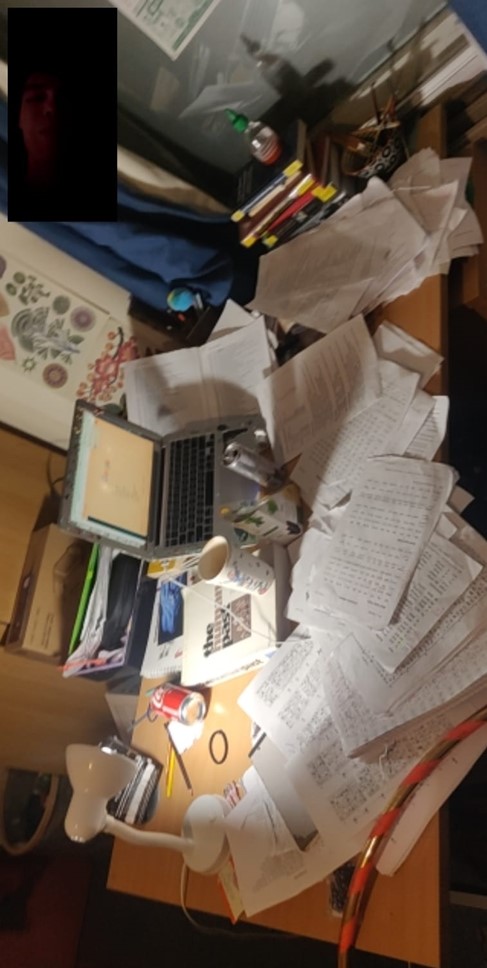
I think the biggest thing I’ve gotten out of this year is mental resilience and the knowledge that, actually, I can do stuff. I think a lot of Cambridge students can relate to the school experience of being able to perform well in subjects without really knowing why or feeling like every good grade has been a fluke.
Well this year, having had a difficult year personally, I fell magnificently behind at points, missing most of my lectures, supervisions and essays, with a very real fear of failing. When exam season came I knew I had to work my ass off, possibly the hardest I’ve ever worked, and catch up on a ton of content. But I did it! And I also feel like I learnt a lot about myself this past year and became more frank about the issues I struggle with. I don't recommend this as a strategy(!), but it's been a real learning curve, and I feel way better now knowing I have both work and mental-health aspects of my life more in control.
What does your timetable look like?
I had two or three supervisions, two language classes (for Babylonian), five lectures and one practical class a week.
How do you manage your workload?
Well this year I couldn’t always manage my workload... so no comment. But when I had it slightly more together I think I kept in mind that in the end, you’re still human – you still need to eat, sleep, shower, exercise, socialise, relax. Even to the detriment of the quality of your work. Let your Tutor and Director of Studies know if you’re struggling and accommodations can be put in place. They are here to help you!
What are your favourite and least favourite things about the college?

The Fellow’s Garden and the pool during summer term. The unlimited sides in the canteen and the cheap coffee from the Buttery!
But sometimes things get cliquey... it’s just a natural response to small, dense environments. Walking through college means being perceived. All the time. That means a lot of waving and small talk when you’re just not in the mood. Also, I both love and hate that the library is open 24 hours a day: we have a complicated relationship.
What have you enjoyed most about life at Christ's this year?
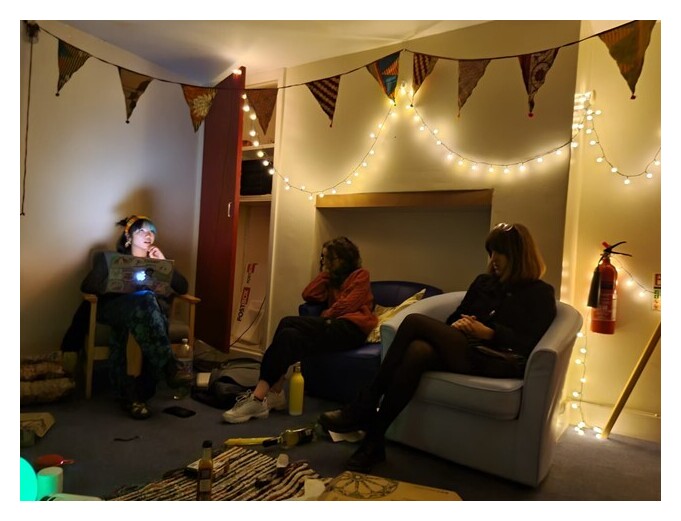
Definitely definitely living outside of the main college site. I lived on Jesus Lane, in one of the college-owned houses just behind the main site, and I loved it!!! Mine was the best house because it had a communal space in the basement and a proper kitchen.
It's been really nice having the separation between ‘home’ life and college. It feels a bit more normal and just generally more independent (even though realistically it isn’t really).
What do you do when you're not working?
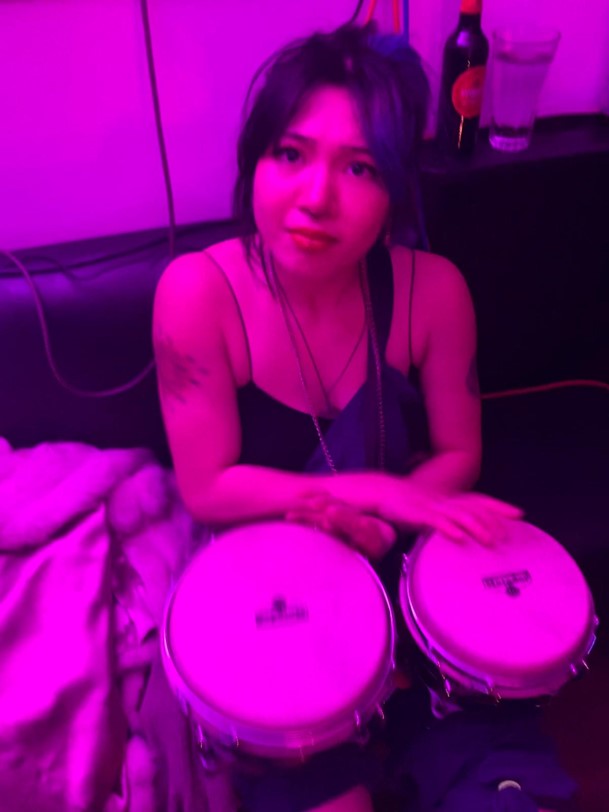
Climbing at the gym (usually Kelsey Kerridge, which is 10 minutes' walk from Christ's, or occasionally at Rainbow Rocket with CUMC) or in the Peaks on the weekend, getting coffee with friends, getting that tan on, going to the funk jams at La Raza and Jazzsoc jazz nights, crocheting. Recklessly buying clothes at the Serpentine Swap, doing ridiculous makeup and wearing ridiculous clothes, (and taking bathroom selfies in them...).
The holidays over the past couple of years have been a bit weird as I haven’t been able to go back to Hong Kong because of the pandemic, so I have spent most vacations in Vancouver with my grandma or in France with my stepfather’s family. A lot of procrastinating on work is involved.
What are you most looking forward to next year?
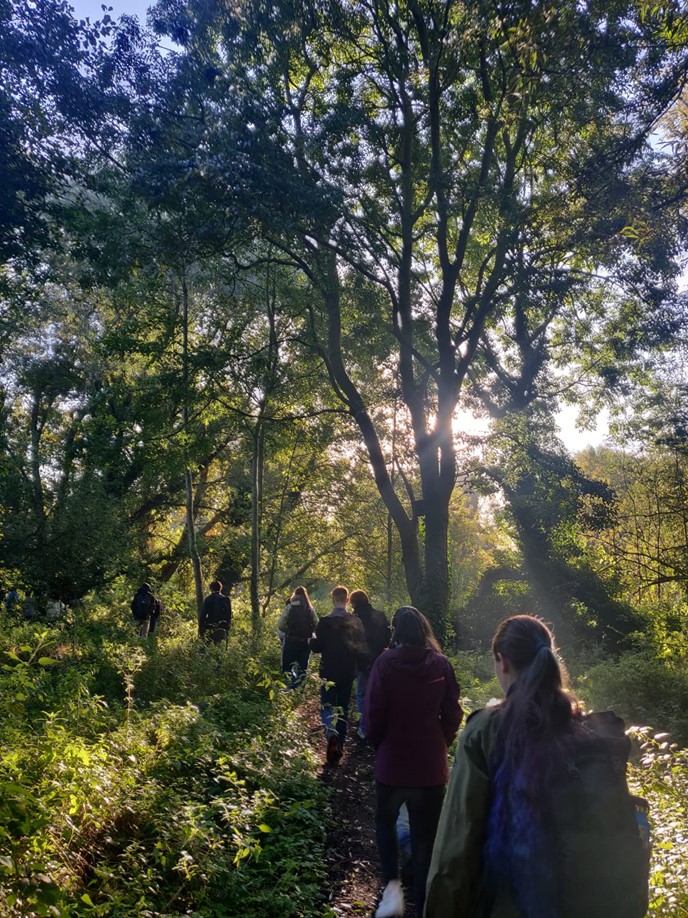
I am looking forward to really having my act up next year (lol) and generally just being able to invest more time into my studies. Also going on more Mountaineering Club trips, getting strong for climbing, doing more life drawing, going to more open mic nights and waking up early enough to go bird watching with BirdSoc. And also to learn loads of interesting new stuff, woo!
Next year I am taking Archaeological Science, Archaeological Theory and Practice I, From Data to Interpretation and Ancient South America. I’m taking them because they're cool and I'm going to enjoy them. And also they will set me up really well for my career trajectory – I'm currently thinking field archaeologist or working in a lab, but I don't really know.
August 2022
Please be aware if you're considering an application that our student writers describe their experiences. Although the majority of the information stays the same, some details may change from year to year. Do read the student profiles in combination with our undergraduate admissions pages for full information.


